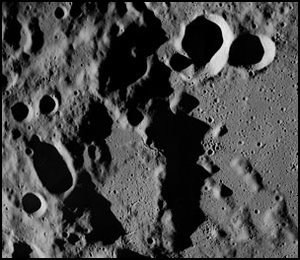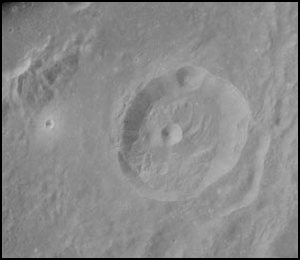-
 Mike Collins (CAPCOM)
Mike Collins (CAPCOM)
-
We have 1 minute to LOS, Frank. You can terminate stirring up your cryos any time, and we agree with all your flight plan changes. Have a beautiful backside, and we will see you next time out.
-
 Ken Mattingly (CAPCOM)
Ken Mattingly (CAPCOM)
-
Roger, Apollo 8. Couple of notes for you: on the P52 you are coming up to on this REV, we've looked at your state vectors and all your information. The platform looks good, and it appears that it is your option if you would like to by-pass this P52, your platform will still be good at the following TEI pass. And we would like to have your PRD reading, and I guess we are behind the sleep summary. Over.
-
 Ken Mattingly (CAPCOM)
Ken Mattingly (CAPCOM)
-
Copy, 144. And we have an update ready to go into your computer for the state vector if you want to go to P00 and ACCEPT.
-
 Ken Mattingly (CAPCOM)
Ken Mattingly (CAPCOM)
-
Okay, Apollo 8. We have completed with the computer. You can use the VERB 47 to transfer, and I have the TEI 9 PAD.
-
 Frank Borman (CDR)
Frank Borman (CDR)
-
Okay. This PAD is a TEI 9, SPS/G&N: 45597, minus 040, plus 157 087:19:18.20, plus 34188, minus 01353, plus 00780 180 008 001, November Alfa, plus 00187 34223 313 34021 42 0898 253 033, down 131, left 28, plus 0758, minus 16500 12987 36277 146:48:16; primary star Sirius, secondary Rigel, 129 155 010; four quads, 15 second, ullage, horizons on 1.2-degree window line at T minus 3; use high speed procedure with minus Mike Alfa. After looking at the burn information from your previous SPS burns, it appears that the engine performance should give us a 3-second burn time, longer than what you have on the PAD. The PAD number should correspond with what you get out of the computer. So we have not factored this into the past data; however, you can anticipate the engine for a normal DELTA-V to give you a 3 second—3.7-second burn in excess of the computed times. Over.
-
 Frank Borman (CDR)
Frank Borman (CDR)
-
TEI 9, SPS/G&N: 45597, minus 040, plus 157 087:19:18.20, plus 34188, minus 01353, plus 00780 180 008 001, NA, plus 00187 34223 313 34021 42 0898 253 033, down 131, left 28, plus 0758, minus 16500 12987, plus—or 36277 146:48:16; and that's Sirius and Rigel 129 155 010, four jet, 15 seconds, 1.2 degrees on the window at T minus 3, high speed minus MA, engine 3.7 seconds longer than given.
-
 Ken Mattingly (CAPCOM)
Ken Mattingly (CAPCOM)
-
That's affirmative, Apollo 8. And when you get around to it, if you would like for us to dump your tape, we can do that when you get on the high gain.
-
 Frank Borman (CDR)
Frank Borman (CDR)
-
Roger.
Expand selection up Expand selection down Close -
 Ken Mattingly (CAPCOM)
Ken Mattingly (CAPCOM)
-
Apollo 8, we'll have one for you the next time around, and we'll update it if necessary on the following REV.
-
 Frank Borman (CDR)
Frank Borman (CDR)
-
Do you have any idea why quad B seems so much lower in quantity than the other three quads?
-
 Ken Mattingly (CAPCOM)
Ken Mattingly (CAPCOM)
-
Okay. It looks to us like, although we're reading out the same thing you are on the quad quantity, using the computer program and all of the correction factors that are in there, it looks like all four of your quads are very close. In pounds, it looks like you have, for example, 193 pounds in quad A and 189 in B, 200 in C, and 190 in Delta. And the difference that you read on the gage is attributed to the fact that you don't have all of the correction factors in there. This ground calculation has an accuracy of about plus or minus 6 percent, and the best you can do on board, even using your chart, is plus or minus 10 percent. Over.
Spoken on Dec. 25, 1968, 12:59 a.m. UTC (57 years ago). Link to this transcript range is: Tweet


